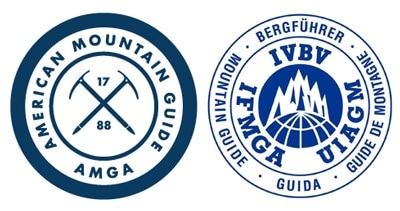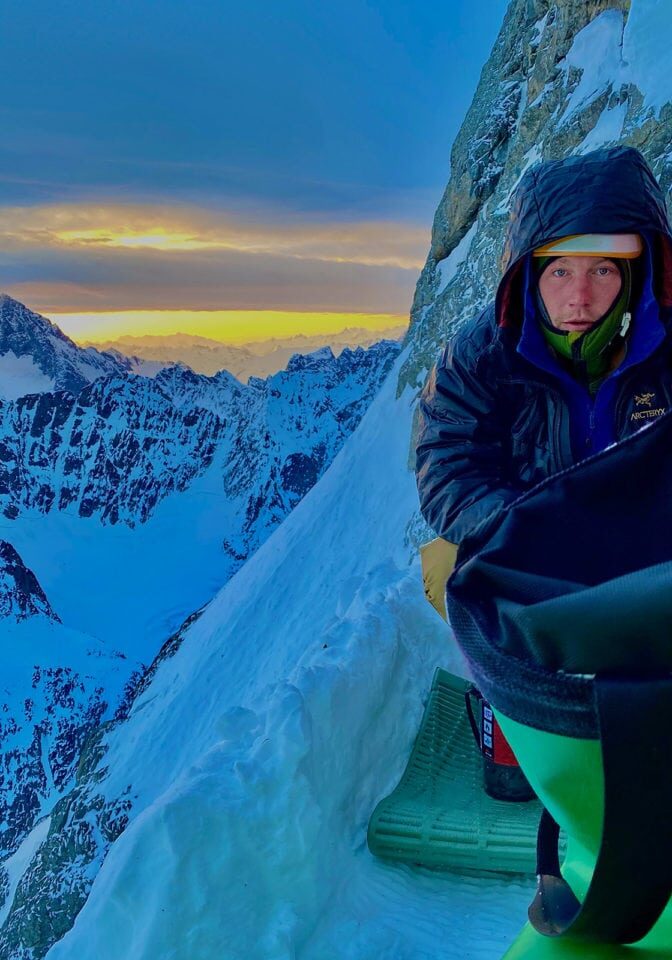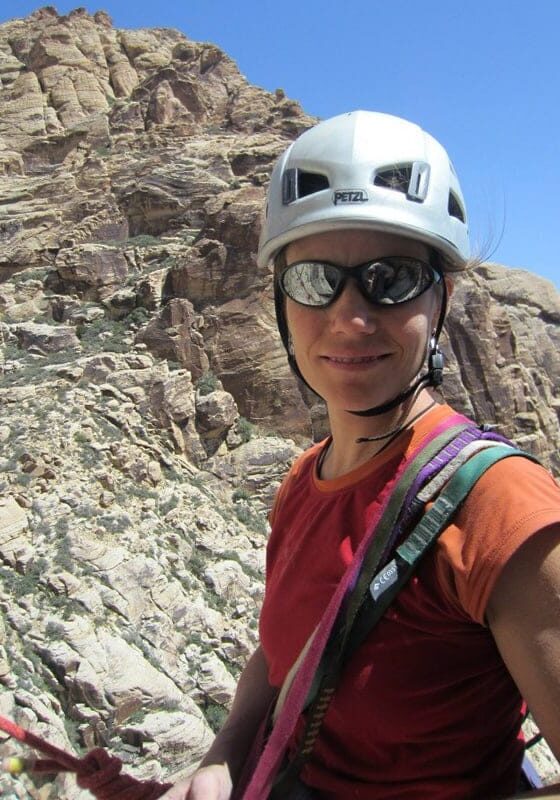FAQs
Synnott Mountain Guides has assembled a list of frequently asked questions about our climbing, mountaineering, skiing, avalanche education, and hiking courses. Photo: fall colors and snow in the White Mountains of New Hampshire.
How far in advance do I need to reserve a course?
As you can imagine, the more notice you can give us, the greater likelihood that we'll be able to accommodate you with exactly what you're looking for. If you put it off too long, you run the risk of guides getting booked up by other parties. So, don't wait for a perfect forecast, as by the time the weather people know what to expect, we might already be full. Instead, book the dates you'd like, and then call us a couple days out to discuss weather options. But now, having said all that, don't ever rule out a last-minute request when you find out you scored a day off, as sometimes we have openings or cancellations!
Where will we meet in the morning?
We usually meet at our office in Intervale, NH at Ragged Mountain Equipment. The address there is 279 NH-16 in Intervale, NH 03845. Your guide also might suggest a different meeting spot, depending on where you'll be climbing. For climbs at Cannon Cliff, we meet at the parking area below the north end of the cliff. If you don't know the way, we will send you a map and directions.
What time do classes generally start and end?
For most courses, the normal meeting time is 8:00am, but your guide might contact you to set a different time. We normally climb for a full day, aiming to finish up between 4 and 5pm. We are very often the first group at the cliff and the last group to leave. However, if you need to be on the road at a particular time, just let your guide know in the morning.
What do I need for equipment?
All of the technical equipment is included in the cost for all courses. We have a full fleet of boots, rock shoes, crampons, harnesses, axes, and helmets. So don't worry if you don't have any of your own gear, we have you covered. If you are interested in purchasing your own equipment, we recommend that perhaps you take your course first, as afterwards you'll be more informed in terms of exactly what you need. If you have any of your own gear, and it seems appropriate for the course, feel free to bring it along.
What do I need for clothing?
For rock climbing courses, dress for the weather, and as if you are headed out on a day hike: t-shirt, shorts, socks and sneakers (no sandals please!) if it's warm enough, and maybe a pullover or windbreaker if it's likely to be cooler. Toss a rain shell in the car as well, just in case. For winter courses, we can send you a detailed list, but basically we recommend you dress as if going out for a day of skiing. You will need to supply your own long underwear and socks, light insulating layers, fleece jacket, shell pants and a good windshell with a hood. You'll also need a puffy jacket (we do have some to borrow), gloves and spares, hat, goggles etc. Let us know if you are missing something, and we might be able to help you out. We don't want anyone to not take a course because they don't have the clothing or gear, but check with us ahead of time...don't wait until that morning!
What happens if we get bad weather?
For our winter courses, this is almost never a problem, because inclement weather usually comes in the form of snow. Since snowstorms are an integral part of the winter mountaineering experience, we simply go about our business. Nevertheless, if the day looks like a complete waste, we will either cancel or reschedule. If you have paid a deposit, it stands as a credit towards whenever you choose to make up the course. In the summer, the weather is a bigger variable, as steady rain can sometimes shut us down (especially for intermediates). However, intro courses need to cover some ground school in the morning anyway, so if the day starts out drizzly, it may not affect much. We find a dry overhang, cover the morning topics normally, and by the time we are ready to hit the cliff, the weather has often improved and off we go. Same with the more advanced courses: if it's wet, we can focus on technical topics (anchor-building, self-rescue, etc.) in a dry place, and then check to see if routes have dried off for the afternoon. The SMG guides know all kinds of good rainy-day options!
Where should we stay?
Please contact SMG for a list of recommended places to stay. It includes local B&Bs, hostels, motels, and camping (either in the White Mountain National Forest or at one of the many local campgrounds). North Conway is also a busy tourist destination, so all the usual chains are represented: Holiday Inn Express, Comfort Inn, Hamptons, etc (in case you have a frequent-guest card or something).
How fit do I need to be to do this?
This depends a bit on which course you sign up for, but generally speaking, you need to be fit enough to hike around for most of a day wearing a moderate sized pack. Normally, we can quite easily set an agenda which makes sense for someone's fitness level. There are only two courses where fitness is generally an issue: Mt. Washington ascents and Presidential Traverses. For either of these, you need to be a strong hiker, capable of grinding uphill for most of a day with a pack on. If you are concerned about your fitness level, let us know and we can talk it over and probably devise a training scheme to follow in order to be ready for your course. Anyone who signs up for a course should use it as a reason to start training so as to show up in the best shape possible. You'll get more out of the experience if you show up in good physical condition.




















